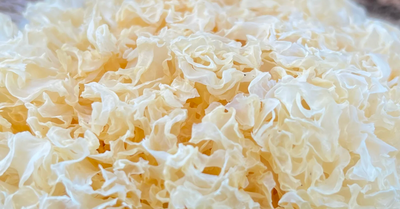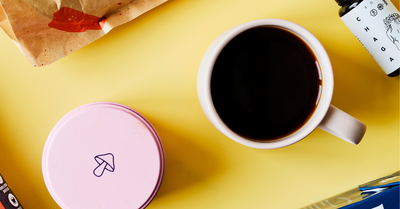
Clean Beauty - What does it all mean?

Clean Beauty - What does it all mean?
Clean Beauty - What does it all mean?
“Non-toxic”, “no nasties”, “clean”, “chemical-free”, “natural”, these are all terms you may have heard used to describe skincare products that avoid the use of less than pleasant ingredients. Is this a marketing ploy to get us to buy an entire new range of (often expensive) skincare products or should we honestly be avoiding these ingredients? We’ll run through what these ingredients are, what these marketing terms mean and what the latest science is telling us.
Breaking down the jargon and buzzwords
Clean skincare is a broad term which can refer to non-toxic products, all natural products, vegan products, cruelty free, sustainable products, etc. The term is largely unregulated and can be plastered onto various products, so always check the ingredients.
Organic skincare is a label used when 95% of the agricultural ingredients are organic, other ingredients and additives do not have to be organic within regulations.
Non-toxic skincare labels can be used on any products with ingredients that have not been deemed toxic at any dose, it should be understood as a product where the ingredients have not been shown to cause adverse health effects when used as intended.
Synthetic vs natural - natural always sounds best doesn’t it? However, not every natural ingredient is safe, for example heavy metals are natural but that doesn’t mean we want to find them in our moisturiser.
The Nasty Nine
The nine ingredients commonly found in cosmetic products and why we may want to avoid them!
1. Parabens
These are widely used artificial preservatives in cosmetics to prevent the growth of mould and bacteria in these products, increasing their shelf-life. Nasty note - the latest research shows the major concern with parabens is the way in which they influence our hormones. Parabens can disrupt the hormones in the body, harming fertility and reproductive organs, as well as potential links to cancer. Several types of parabens have already been banned in Europe and the US however others are still permitted. Look out for methylparaben, propylparaben, ethylparaben and butylparaben in the ingredients.
2. Phthalates
One of the reasons we love our favourite cosmetics is their gorgeous scents, however these fragrances, whether synthetic or natural, are often accompanied by phthalates to keep them fresh. Nasty note - phthalates have been linked to reproductive and hormonal damage, particularly in men and children. Look out for phthalates listed as DEP, DBP, DINP and BBP.
3. Aluminium
Aluminium is used mostly in toothpaste, lipstick and antiperspirants as a thickener, sweat blocker and antibacterial agent. In the rest of our lives we have rather frequent aluminium exposure in vaccines, diet, and drinking water, but cosmetics certainly add to it. Nasty note - there has been no definitive link between aluminium in deodorant and breast cancer as the absorption rate through skin is 0.01% however when combined with shaving, armpit absorption is increased to 0.06% and is associated with an earlier onset of breast cancer. Aluminium is also considered a neurotoxic mental, which may influence our cognitive health following frequent intake of aluminium. However this is an area which requires much more research. Look out for aluminium zirconium chloride hydroxide complexes and aluminium zirconium chloride hydroxide glycine complexes.
4. SLS
Sodium lauryl sulphate is one of those ingredients likely to be found in any of your foaming cosmetics - shampoo, bodywash, toothpaste, foaming cleanser, etc. It is a surfactant and used as a cleansing and foaming agent in these products to help grime and food residue lift easier. Nasty note - SLS interferes with the integrity of our skin barrier, causing sensitivity which may disappear when use is discontinued. With SLS toothpaste, this increases the appearance of mouth ulcers due to the oral irritation caused. On a positive note, despite some internet claims, there have been no research studies showing SLS increases the risk of cancer. Look out for sodium lauryl sulphate and sodium laureth sulphate.
5. Carbon black
A dark black powder used as a pigment in eye makeup products such as mascara and eyeliner to maintain the dark colour. Nasty note - in small doses where concentrations are less than 10% this is not considered to be harmful however the cumulative effect may have links to increased cases of cancer, neurodevelopmental effects in infants, hormone production and lung conditions, particularly following frequent inhalation. Look out for acetylene black, channel black, furnace black, lamp black, and thermal black on the ingredients list.
6. Oxybenzone
Oxybenzone is a well-known ingredient in sunscreens where it creates a chemical reaction turning damaging UV rays into heat to protect the skin and reduce the risk of DNA damage. Nasty note - more research is needed but every recent study agrees that oxybenzone shows a hormone disrupting effect, something that can be passed through the placental barrier to potentially result in low birth weight and birth defects. Those with sensitive skin or rosacea may experience discomfort when using these products due to the heat based reaction irritating their skin. Look out for oxybenzone and benzophenone-3 on the ingredients.
7. Formaldehyde
Formaldehyde might not be something you were expecting to see on a cosmetic ingredient list as it’s better known for historically being used in building materials but it has subtly crept its way into our beauty regimes. Formaldehyde has been removed from most cosmetic products, such as nail polishes, however ingredients are still used which combine to create formaldehyde. This is particularly true of keratin treatments, even those labelled ‘formaldehyde free’. Nasty note - formaldehyde is globally recognised as a human carcinogen and exposure often prompts side effects of a sore throat, itchy eyes and nose bleeds. This is likely to be more of a concern for those working in beauty salons than those receiving the treatments. Look out for methylene glycol, formalin, methanal, and methanediol, which when combined with water release formaldehyde.
8. Propylene Glycol
This is used in cosmetics for the skin such as moisturisers and cleansing oils, as well as hair shampoo and conditioner. The principle role in these products is as a humectant, attracting water and locking it into the hair and skin to improve hydration. Nasty note - despite various articles claiming otherwise, research shows there isn’t a problem with propylene glycol itself, however as it increases the skin's absorption rate, any toxic ingredients used afterwards is likely to be absorbed in greater quantities. This is problematic if you use potentially toxic products on your skin or if you have sensitive skin as it can increase irritation. Look out for propylene glycol.
9. Refined Petroleum
Often found in moisturising products as petroleum jelly, this mineral oil is used in balms, lotions, lip products and makeup remover. Nasty note - when refined properly there are no health concerns associated with this ingredient and within Europe the full refining history must be known and cleared as non-carcinogenic. Unfortunately, in the US this is not the case, so if you are purchasing your cosmetics overseas these petroleum-based products may contain carcinogenic polycyclic aromatic hydrocarbons. Look out for petroleum jelly and mineral oils.
The final note
According to the latest research, not all of these ingredients are inherently bad, some are safe when sourced properly and combined with other well-produced products. It is important to remember that the quality of an ingredient varies between countries, where the production process may be heavily regulated in one location, it may not be in another. With that said, if you are going to avoid any of the above ingredients, prioritise Phthalates, Aluminium, SLS and Parabens.
Check out our range of trusted skincare here.










